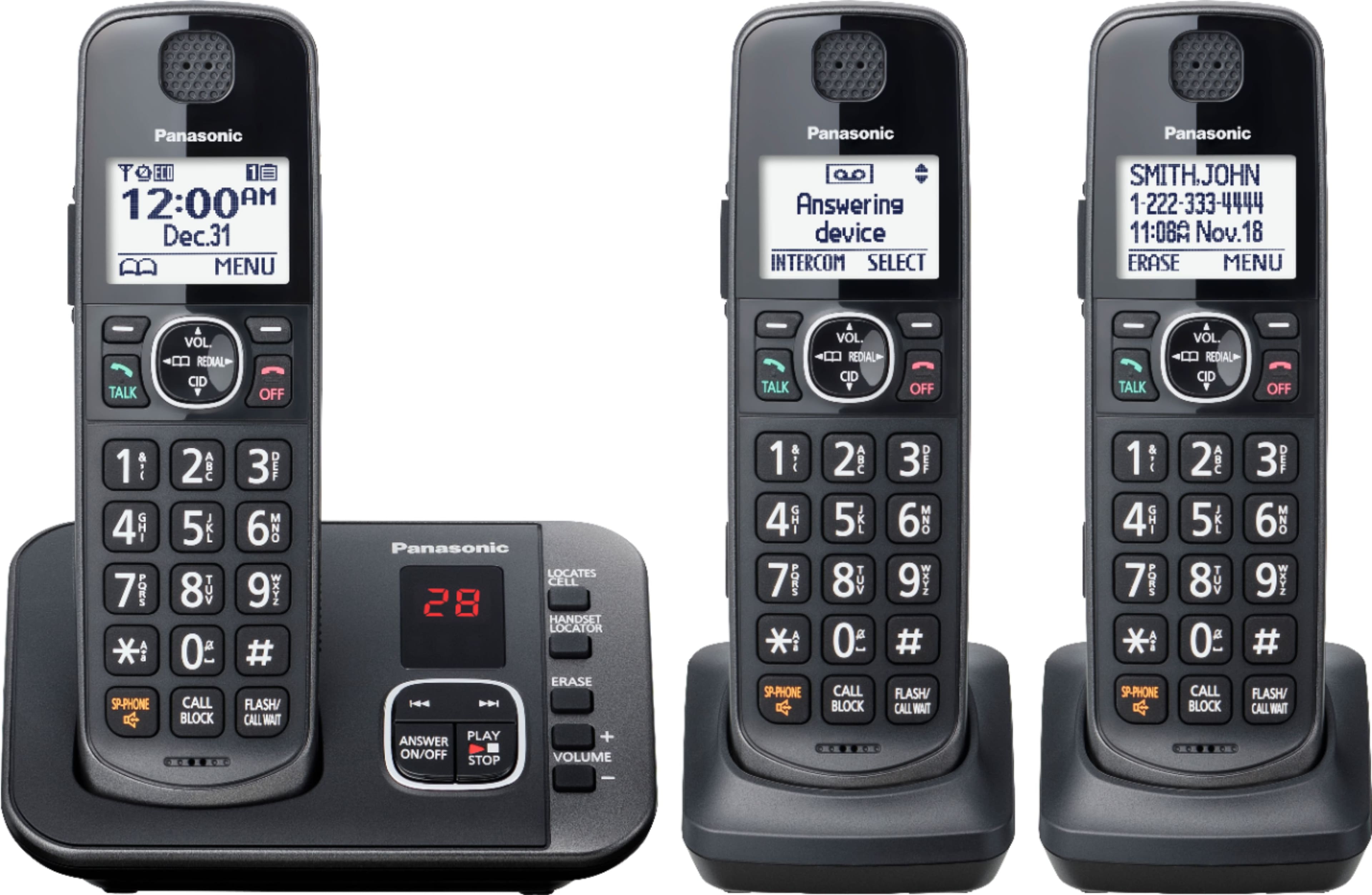The Development of Phone Equipments: From Landlines to VoIP
The globe of phone systems has actually undertaken an impressive change over the years. In this article, we will certainly explore the trip of phone systems, starting from the very early telephone innovation to the intro of digital phone systems, and lastly, the arrival of VoIP. As we dive right into the future of phone systems, it ends up being evident that VoIP is here to stay, forming the way we connect and attach in the electronic age.
Early Telephone Technology
Early telephone innovation's development played a critical role in reinventing communication methods. At the leading edge of this technological innovation was Alexander Graham Bell, who is credited with developing the telephone in 1876. Bell's innovation noted a considerable turning point in the background of interaction, as it enabled for real-time, long-distance discussions to happen.
The early telephone systems depended on landlines, which were physical links in between two telephones with a network of cords. These landlines enabled voice signals to be sent over cross countries, bringing people better together and promoting instant communication. While the preliminary telephone systems were limited in extent and accessibility, they laid the foundation for the growth of more advanced communication innovations in the future.
One of the essential advancements in very early telephone modern technology was the intro of the switchboard system. The switchboard permitted several telephones to be linked to a main exchange, making it possible for customers to make telephone calls to different areas. This innovation considerably increased the reach and access of telephone communication, as it removed the need for a straight physical connection in between 2 telephones.
Transition to Digital Phone Systems
The advancement of telephone technology resulted in the shift from landlines to digital phone systems, noting a substantial change in the way interaction was performed. Digital phone systems, likewise recognized as Voice over Internet Procedure (VoIP) systems, utilize net connections to send voice signals instead of standard copper wires. This transition to digital phone systems has produced countless advantages for organizations and individuals alike.
One of the key advantages of electronic phone systems is expense financial savings. VoIP systems eliminate the demand for multiple phone lines, as all calls are sent over the web. This leads to decreased framework expenses and lower monthly expenses. Additionally, worldwide phone calls can be made at substantially reduced rates compared to standard phone systems.
An additional advantage of digital phone systems is boosted capability. VoIP systems offer a vast array of features such as call forwarding, voicemail, call recording, and video clip conferencing. These features improve communication effectiveness and make it possible for organizations to team up better. Electronic phone systems can conveniently integrate with various other service communication devices such as e-mail and instantaneous messaging, supplying a merged and streamlined communication experience.
Introduction of Voip Technology
With the introduction of VoIP modern technology, the landscape of phone systems began to change in the direction of a more cost-effective and efficient communication option. VoIP, or Voice over Web Protocol, enables customers to make phone calls online as opposed to conventional landlines. This modern technology converts voice signals into electronic packets and transmits them over information networks, removing the requirement for devoted phone lines.

An additional benefit of VoIP is its flexibility and scalability. With conventional phone systems, getting rid of or adding phone lines can be a costly and cumbersome procedure. With VoIP, users can conveniently include or get rid of lines as needed, making it an extra scalable remedy for businesses of all dimensions (Business Phone Systems Houston TX).
In addition, VoIP technology supplies a large range of features that enhance communication efficiency. These features include voicemail to email transcription, call forwarding, meeting calling, and auto-attendant systems. These features not only improve efficiency but additionally make communication much more easily accessible and hassle-free.
Advantages of Utilizing Voip
How does VoIP technology deal substantial benefits over standard phone systems? VoIP, or Voice over Web Method, has revolutionized the way we communicate by giving numerous benefits that typical phone systems just can not match.
Unlike conventional phone systems that depend on physical phone lines, VoIP uses a net connection to transfer voice data. In addition, VoIP systems usually offer affordable pricing strategies Bonuses that consist of unrestricted residential calling, more decreasing interaction expenses.
Secondly, VoIP modern technology supplies boosted adaptability and scalability. Typical phone systems are restricted by the variety of physical phone lines, making it costly and challenging to add or remove lines as needed. In contrast, VoIP enables easy scalability, allowing services to add lines or extensions without the requirement for added equipment.
One more benefit of VoIP is its rich features and combinations. VoIP systems typically include a series of sophisticated features such as voicemail, telephone call forwarding, call recording, and automated assistants. These functions enhance productivity and customer service. VoIP can seamlessly integrate with other interaction tools like e-mail, immediate messaging, and video clip conferencing, offering a combined interaction experience.
Finally, VoIP deals increased movement and access. With VoIP, individuals can make and obtain phone calls from anywhere with a net link, permitting remote job and company continuity. This level of access is especially useful for businesses with remote workers or several workplace places.
Future of Phone Solutions
As modern technology continues to advancement, the future of phone systems holds the promise of even higher development and seamless interaction. With the rapid growth of expert system (AI), virtual reality (VIRTUAL REALITY), and the Web of Things (IoT), the possibilities for phone systems are expanding past conventional voice telephone calls.
One secret element of the future of phone systems is the combination of AI. AI-powered digital assistants, such as Siri and Alexa, have actually currently become commonplace in our homes. NEC Phone System Dealer Houston TX. In the future, these assistants will likely play a bigger function in handling our telephone call, scheduling conferences, and also carrying out discussions Learn More Here on our part. AI will certainly additionally make it possible for sophisticated telephone call filtering system and routing, making certain that calls are guided to the suitable person or department without the need for hand-operated treatment.
Another area of development is the combination of phone systems with various other interaction networks. With the surge of messaging applications and social media platforms, individuals are progressively shifting towards text-based interaction. In the future, phone systems will flawlessly incorporate voice, video, and text-based interaction networks, permitting users to change in between them easily.

Final Thought
In conclusion, the development of phone systems from landlines to VoIP technology has actually transformed communication. Early telephone modern technology laid the foundation for digital phone systems, which led the way for the introduction of VoIP.
In this write-up, we will explore the journey of phone systems, beginning from the very early telephone modern technology to the introduction of electronic phone systems, and finally, the introduction of VoIP. Digital phone systems, additionally recognized as Voice over Internet Protocol (VoIP) systems, utilize net links to transmit voice signals rather over here of typical copper wires. With typical phone systems, including or getting rid of phone lines can be a cumbersome and pricey procedure. Unlike traditional phone systems that count on physical phone lines, VoIP uses a net connection to send voice information. Typical phone systems are restricted by the number of physical phone lines, making it difficult and pricey to include or get rid of lines as needed.